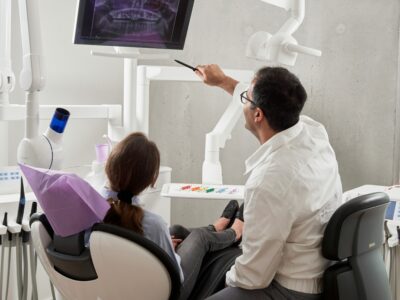
A New Survey Reveals Most Americans Lies to Dentists
A recent survey has brought to light an interesting yet concerning trend: more than half of Americans admit to not being entirely truthful with their dentists regarding their oral hygiene habits. This phenomenon, which has raised the attention of dental professionals across the country, stems primarily from feelings of embarrassment, discomfort, or fear of being judged over their dental care routines.
The survey, conducted by a prominent health and wellness organization, included responses from over 2,000 individuals. Participants were asked about their oral hygiene practices, such as how often they brush and floss, their consumption of sugary foods and drinks, and whether they smoke or chew tobacco—all factors known to affect dental health significantly. Surprisingly, a majority confessed to altering their answers, often presenting themselves as maintaining better habits than they actually do.
Dentists report that this tendency to withhold or embellish information can complicate their ability to provide the most effective care. When patients are not forthcoming, practitioners may misdiagnose conditions or fail to advise on preventive measures that could protect oral health in the long term. In many cases, small dental issues left unaddressed can escalate into serious concerns requiring more invasive and costly treatments.
Experts emphasize that dental professionals approach patient care without judgment. Their primary objective is to help individuals maintain healthy teeth and gums, avoiding unnecessary discomfort or health complications. Transparency is crucial, especially regarding habits such as flossing frequency, sugar intake, and tobacco use, as these directly influence recommendations for personalized dental care plans.
One underlying reason why people tend to conceal the truth is rooted in the general discomfort many experience when visiting a dentist. For some, the clinical environment and personal nature of dental examinations trigger feelings of vulnerability. Others fear being reprimanded or shamed, which deters them from admitting to less-than-ideal habits. However, dental practitioners continuously stress the importance of honest communication, assuring patients that their role is not to scold but to assist.
From a Torah perspective, the concept of emet—truthfulness—is fundamental in all areas of life, including interactions with healthcare providers. Our sages teach that seeking proper guidance requires honesty, as only through accurate information can one receive the necessary assistance. Whether in spiritual matters or physical health, being forthright allows one to receive the best possible outcome and avoid unnecessary suffering.
Additionally, maintaining one’s health, including oral hygiene, aligns with the mitzvah of guarding one’s body, as it is a vessel entrusted to us. Neglecting dental care not only affects one’s mouth but has also been linked to broader health issues, such as cardiovascular conditions and diabetes. Therefore, taking responsibility for one’s habits and being truthful with healthcare providers is part of fulfilling our duty to preserve the well-being bestowed upon us.
Dentists recommend several practical ways to alleviate discomfort during visits. Building a relationship based on trust with one’s dentist, asking questions, and discussing concerns openly can foster a more positive experience. For those who may have fallen short in their dental care routines, dentists remind us that improvement is always possible, and there is no shame in taking steps toward better habits at any stage.